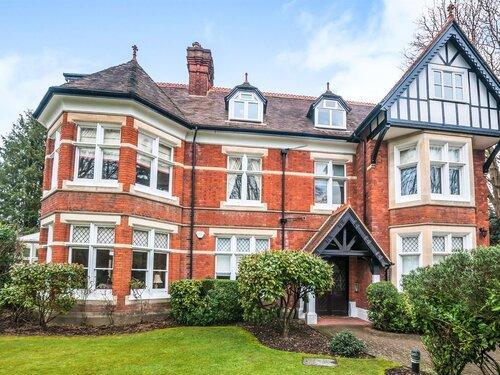What Does Freeholder Mean When Purchasing Property?

“Freeholder” is a word that can mean different things depending on the context. For example, freeholders are people who own freehold property and freeholders are also members of the free-holding class in Great Britain. In this blog post, we will be looking at the freeholder meaning in relation to what it means to be a freeholder when purchasing property.
What does freeholder mean when purchasing property?
In the context of buying a house, freeholders are people who own freehold properties.
Freehold land is property that you own outright, while long lease land belongs to the person or company for which it was leased. Freeholders have the right to use the land for their lifetime and pass it on to their heirs without incurring any additional costs. A freeholder owns the land, the ground underneath it and the airspace as well at any buildings on that land. A freeholder also has the right to sell their freehold property without interference from a landlord or any other third party.
Is the freeholder the landlord?
Because a freeholder has ownership of the deed, and becomes responsible for the management, maintenance, service charges, ground rent, and repair of the building, they are in essence the landlord, and are sometimes referred to in this way.
What are the responsibilities of a freeholder?
The responsibilities of freeholders are to take care of the freehold building that they own. Freeholders are also responsible for paying taxes on freehold properties, as well as any other charges that are associated with it. Freeholders should also be aware of any freehold restrictions, such as those that prohibit freeholders from building additional structures on their freehold property.
Freeholders may also be responsible for:
- Undertaking the repairs and maintenance of the structure, exterior and common parts of a property
- Managing the utilities required for communal areas
- Organising communal garden care and pest management
- Following Section 20, planning and arranging major projects
- Obtaining the appropriate level of building insurance
- Communicating with contractors, local council and any managing agents.
- Collecting ground rent & service charges from tenants
There are additional freeholder responsibilities to be aware of, though these are often delegated to a managing agent. You can read more information on those in our blog.
What is a freeholder fee?
Freeholder fees are the fees incurred for granting licenses to either alter or assign the freehold. They are commonly confused with service charges, which are the fees that leaseholders pay toward the upkeep of the building, such as repairs and maintenance of communal areas.
What is the difference between a freeholder and a leaseholder?
A leaseholder is someone who owns a lease from the freeholder (also known as the landlord) to use the property for a set period of time. Leaseholders do not own the property outright, and are referred to as a tenant. Leases are also generally long term, lasting generally from 90 to 120 years and sometimes even 999 years, but they can be short, such as 40 years.
A leaseholder has a contract with the freeholder that sets out their legal rights and responsibilities. The freeholder will normally be responsible for maintaining the common parts of the building, such as the communal halls and gardens, as well as the exterior walls and roof.
Leaseholders are also required to pay maintenance fees, annual service charges, ground rent and their share of the buildings insurance.
Leaseholders will have to obtain permission for any works done to the property, and may face other restrictions, such as not owning pets or subletting.
If leaseholders don’t fulfil the terms of the lease – for example, by not paying the fees – then the lease can become forfeit.
The freeholder can be a private individual or company, or the freeholder can be a company formed of leaseholders in the building.
Should I become a freeholder?
Buying the freehold of a flat or building can be beneficial for a number of reasons. Just some of the things freehold owners can do include:
- Extending your lease without any further payable premium
- Removing the obligation to pay ground rent
- Making service charges more affordable and efficient
- Changing building permissions, for example to allow pets
- Holding the buildings maintenance, insurance and servicing to a higher, more agreeable and affordable standard
- Taking full ownership of the property to reduce costs, improve flats, and increase the happiness of flat owners
Want to know more about buying the freehold of a flat? Read everything there is to know about what it means to be a freeholder and how to buy your freehold.
In summary
A freehold is a type of ownership where the land and any buildings on it are owned together as one unit, rather than individually. Freeholders have the right to use their freehold properties for life without interference from anyone else, with some exceptions such as death or if they sell off their freehold rights. If you’re thinking about becoming a freeholder yourself, we at The Freehold Collective can guide your decision by providing information about what being a freeholder entails including how it can benefit you financially and legally. Find out more today and purchase your freehold or read our full guide to purchasing the freehold of your flat.

